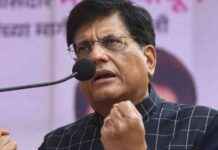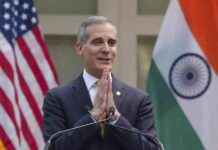Trade Unions Push for EPFO Pension Increase
In a recent development, trade unions have come together to demand a significant increase in the minimum pension provided by the Employees’ Provident Fund Organisation (EPFO). The unions are calling for the pension to be boosted to Rs 5,000 per month, five times the current amount.
The demand was made during a pre-budget meeting with Finance Minister Nirmala Sitharaman in New Delhi on Monday. Trade union leaders outlined several key requests, including the immediate formation of the 8th Pay Commission and a proposal for higher taxes on the super-rich in the upcoming 2025-26 Budget.
Key Demands and Recommendations
During the meeting, the trade union representatives put forth a series of demands aimed at improving the financial well-being of various groups within the workforce. These demands included:
– Increasing the EPFO pension to Rs 5,000 per month
– Forming the 8th Pay Commission without delay
– Raising the income tax exemption limit to Rs 10 lakh per annum
– Establishing a social security scheme for gig workers
– Restoring the old pension scheme for government employees
– Halting the privatization and corporatization of Public Sector Undertakings (PSUs)
– Implementing an additional 2% tax on the super-rich to support social security for informal workers
– Extending social security benefits to agricultural workers and setting a minimum wage for them
Trade union leaders emphasized the importance of these measures in ensuring the financial stability and security of workers across various sectors. They stressed the need for comprehensive support systems to address the diverse needs of the workforce.
Call for Government Action
Following the meeting, TUCC national general secretary S P Tiwari spoke to reporters about the urgent need for government intervention to address these pressing issues. Tiwari highlighted the importance of prioritizing the well-being of workers and ensuring that their rights and benefits are safeguarded.
As discussions around the upcoming budget continue, the demands put forth by trade unions are likely to spark further debate and deliberation. The push for increased pensions, higher tax rates on the wealthy, and enhanced social security measures reflects a broader concern for equitable distribution of resources and support for all members of the workforce.
In conclusion, the call for action from trade unions underscores the ongoing efforts to promote economic justice and fairness in the country. The outcome of these demands will have far-reaching implications for millions of workers and their families, shaping the future landscape of labor rights and social welfare policies in India.























